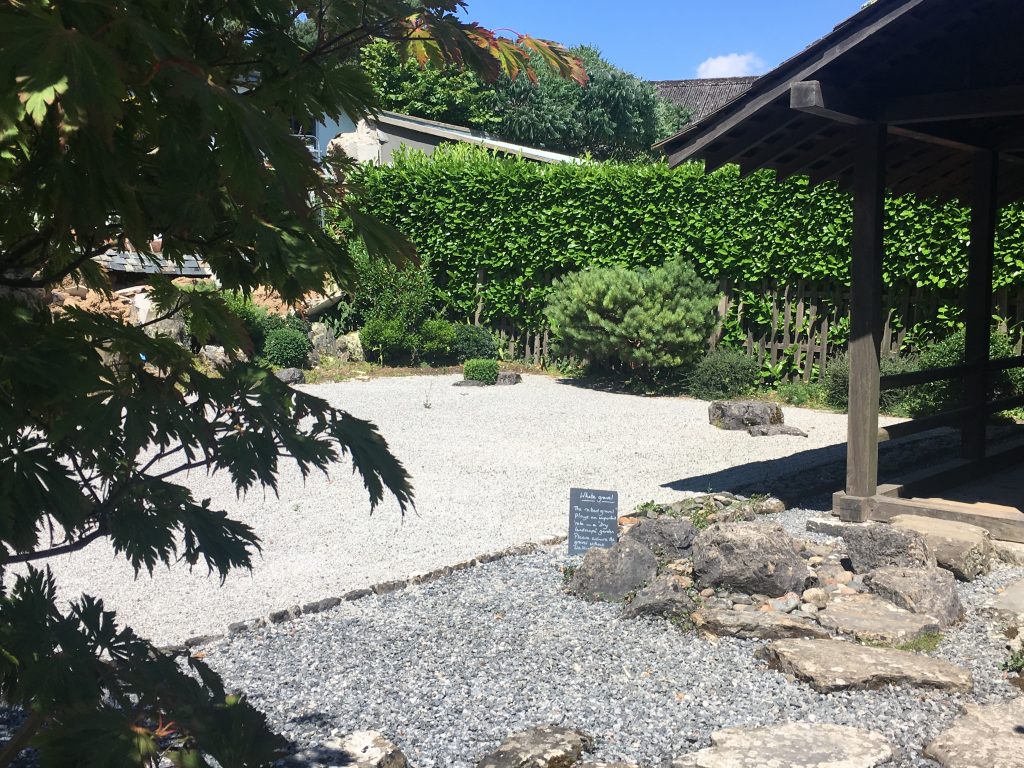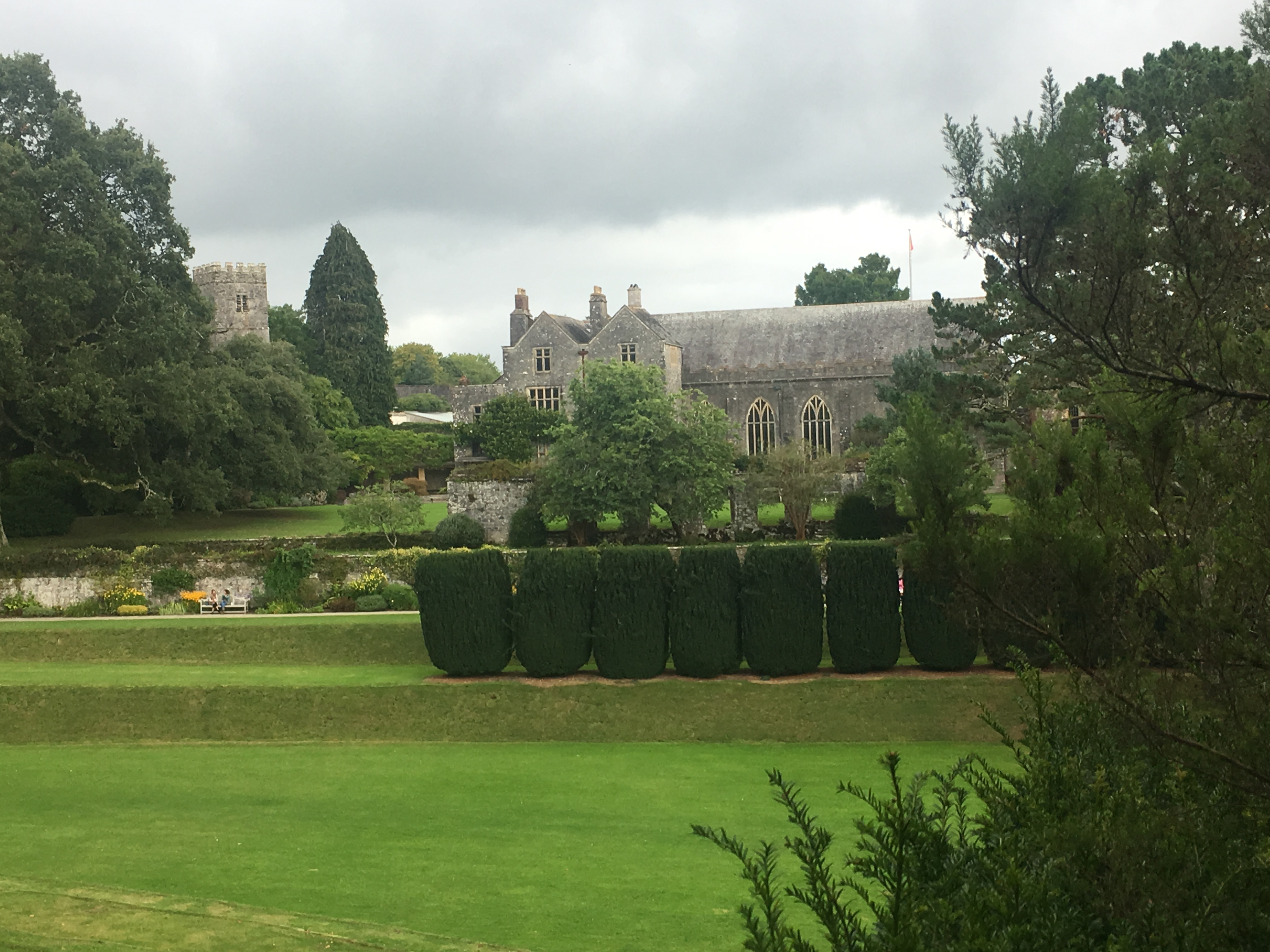
Ways with Words (at Dartington Hall, Totnes, UK)
by John Dougill
For the past week I’ve been attending a literary gathering deep in the Devon countryside. Medieval buildings, beautiful grounds, gorgeous countryside and Britain’s finest residential festival, with ten days of simultaneous talks by the country’s top selling authors. This year coincided with a spell of constant sunshine, the finals of Wimbledon and the end games of the World Cup – an overabundance of riches that presented awkward choices.
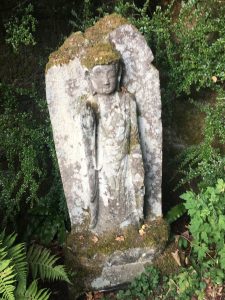
As was often the case with Britain’s aging estates, Dartington was rescued from destitution by American money in the 1920s. Under the influence of Indian poet Rabindranath Tagore, friend of the new owners, it became an exciting artistic and ecological hub, later achieving wider fame for its excellence as a music school. Now the grounds host the influential Schumacher College (Gaia theory and ‘small is beautiful’), whose leading light Satish Kumar has given talks in Kyoto in recent years. It’s not the only Japanese connection. There’s an extremely rare species of cherry tree, so rare in fact that it survived here even when it had died out in Japan, and in the decommissioned churchyard there is now a ‘Zen meditation garden’ of rocks and raked gravel.
Literary festivals have become immensely popular in recent years, and virtually every literate community has one. Yet writers giving talks is an odd phenomenon, since many authors write books precisely because they wish to avoid product promotion and public performance. Writing is a solitary business, and there may be good reason for choosing such a lifestyle. On the other hand, there are plenty of writers for whom books are more of a sideline with their main source of income coming from outgoing professions such as academic, journalist, celebrity or entertainer.
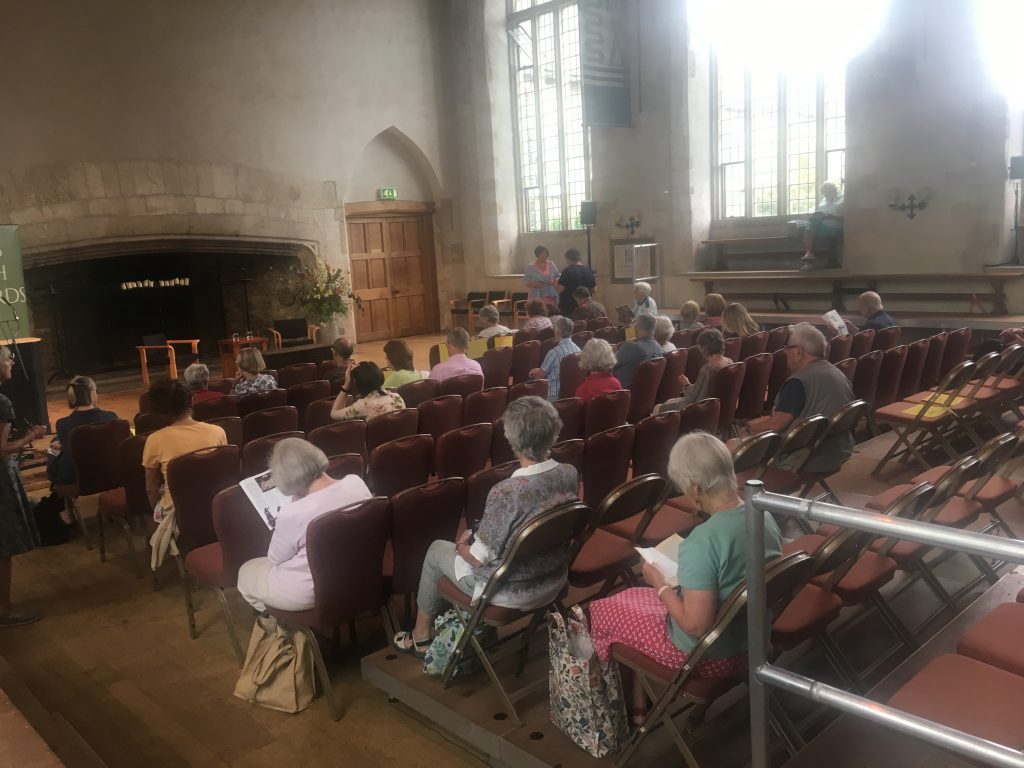
Given the above, it comes as no surprise that there was a great variety of presentation methods, from the reading aloud of a typed paper, to the use of notes, to free style talking around a series of book extracts, to complete spontaneity. Some were done in academic style, some in personal style, some tended towards the theatrical, and one in particular resembled a Japanese ‘talento’, complete with dyed hair, wacky clothes, overacting and audience participation. (The talk was on the nature of consciousness and whether the self was an illusion!)
On an afternoon walk through the woods, I pondered whether there were lessons to be drawn. Much of course has to do with the power of personality, but there are some aspects over which speakers can exercise control. Take the use of power point, for example. One speaker illustrated nearly every point with high-quality visuals, but the result was merely distracting because of the difficulty of taking in details with the eye at the same time as concentrating on the complexities of the spoken word. Ironically the talk would have been better without all the time spent on accumulating the illustrations. By contrast other speakers used merely one or two visuals in their talk, but spent time drawing attention to significant aspects. This worked particularly well, for it brought out extra meaning rather than simply being decorative.
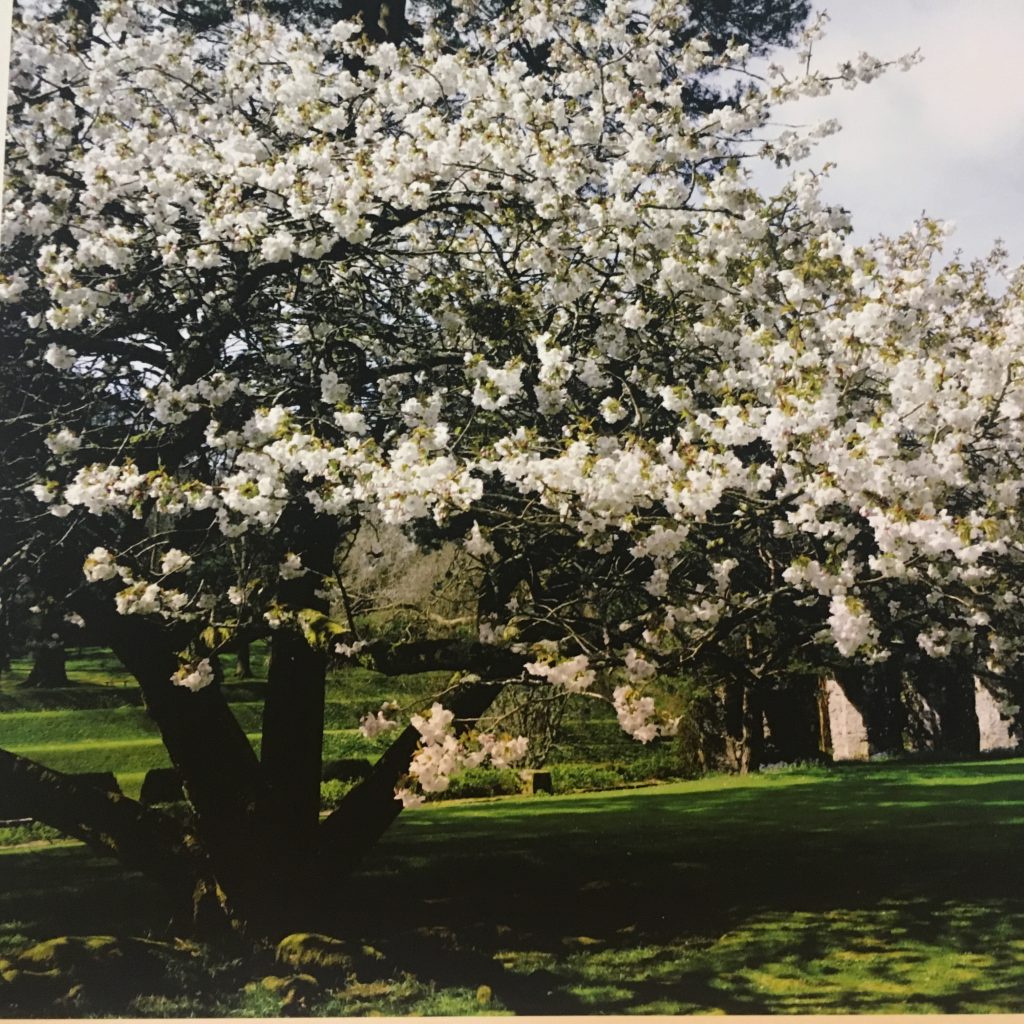
Another format that proved successful was the interview session, in which an informed interviewer, armed with close reading of a book, teases out from the author interesting insights and personal revelations. This puts the onus for preparation on the interviewer rather than the author, which seems only right. (It touches too on the question of whether writers should get paid for their time when giving talks, and the Society of Authors is currently running a campaign along those lines. Writers in Kyoto too tries to pay an honorarium for speakers.)
The best of the talks as far as I was concerned, and certainly the most entertaining, was on a subject in which I had no interest and by an author of whom I knew nothing – Caroline of Ansbach by Matthew Dennison. It was in the beautiful setting of the Great Hall, and as it followed lunch I thought it might make for a pleasant snooze. It turned out though that the presenter had prepared well – either that or he had done the talk many times previously, for instead of reading out his text he would glance down at it, sometimes reading a sentence from a new paragraph and then improvising on the theme. This gave his talk ‘wings’ as he was able to take off on unrehearsed passages that allowed his enthusiasm to show through. A potentially dry subject was brought to life with jokes and a light touch, and only at the end of a fascinating talk did I realise that for a whole year of my life I’d passed every day beneath a statue of the said Caroline, for as the wife of George II she had been benefactress and second founder of the Oxford college I attended. (She stands now regally in a cupola above the entrance of Queen’s on Oxford High Street.)
Due to the exceptionally fine weather, I was lured to take a long walk in the rolling hills which reminded me once again of the value of solitary walking for creative thought. Stimulated by the talks I’d attended, I found ideas bobbing up unwilled as I paced along riverside pathways. The inspiration that derives from walking seems to have much to do with the state of mind induced by the easy-going pace together with the hypnotic repetition of unhurried steps. It’s a subject touched on previously on this website, and it’s one well worth revisiting. Walking is surely the best antidote to writer’s block, and through the articulation of unformed ideas comes the true joy of creation. It is as if one taps into a different self.
Walk on through the wind,
Walk on through the rain,
Though your dreams be tossed and blown,
Walk on with hope in your heart,
And you’ll never walk alone
You’ll never walk alone.
All this raises the question of whether Writers in Kyoto will one day be able to put on some kind of a literary festival. It’s worth thinking about, particularly if we were able to collaborate with sister organisations such as the Kyoto Journal, Kansai Swet or the annual Japan Writers Conference. One simple format that might suit our purposes would be to have short readings by a panel of three or four WiK writers with shared interests – Kyoto, poetry, fiction, for example. In this way we can aim to bring the words off the page and invest them with new meaning for a live audience. If we can combine this with the exceptionally talented musicians who support us, we could provide a setting of inspirational improvisation in which words grow wings and take flight -– a literary festival worthy of being added to the city’s rich heritage of festivals!
******************
For an essay on the relationship of walking and writing, click here.
